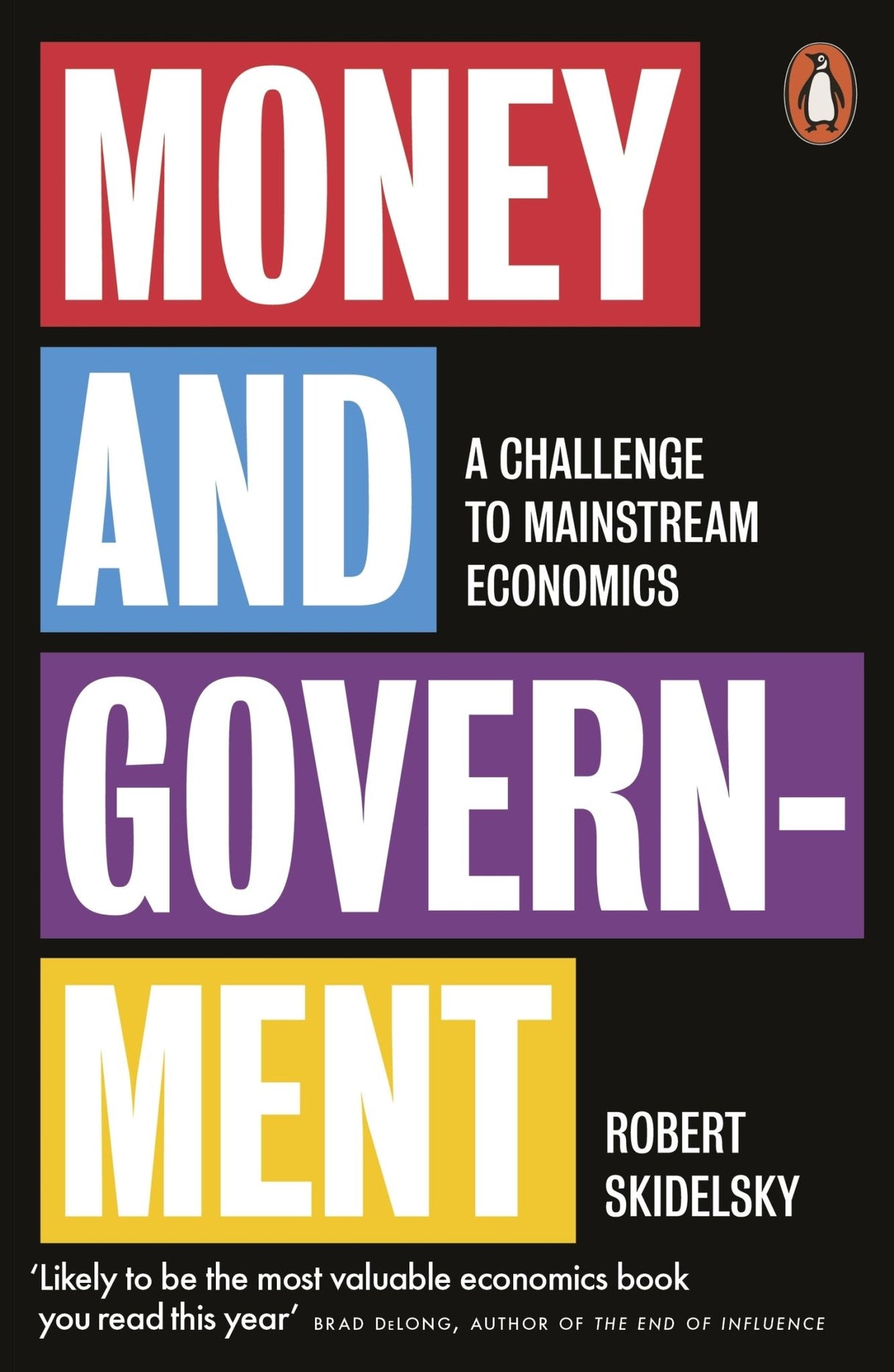SKU:
PR540084
Money and Government
$43.95
Unit price
/
Unavailable
Discover the compelling insights of 'Money and Government' by renowned economist Robert Skidelsky, a transformative exploration of modern economic thought and its crucial intersection with government policy. This thought-provoking paperback dives deep into the historical perspectives surrounding money, from the challenging Great Depression of 1929-32 to the contemporary global financial crisis of 2008. Unlike the prevailing belief that free markets should independently dictate economic outcomes, Skidelsky argues for a reevaluation of the roles that both money and government play in shaping our economy.
Spanning over 512 pages, this book expertly critiques the doctrine that has dominated economic theory for decades, challenging the idea that austerity measures are the unavoidable path forward. Through a Keynesian lens, it seeks to empower the next generation of economists to challenge outdated narratives and explore innovative solutions to today’s economic dilemmas. Perfect for students, scholars, and anyone interested in understanding the dynamic interplay between fiscal policy and economic stability, 'Money and Government' is essential reading for anyone who wishes to grasp the complexities of modern economics.
With this purchase, enjoy free shipping—perfect for enhancing your economic library without any additional costs. Get ready to reshape your understanding of money and government in economic discourse today!
Condition: BRAND NEW
ISBN: 9780141988610
Format: B-format paperback
Year: 2019
Publisher: Penguin UK
Pages: 512
Description:
The dominant view in economics is that money and government should play only a minor role in economic life. Money, it is claimed, is more than a medium of exchange; and economic outcomes are best left to the 'invisible hand' of the market. Tracing the establishment of this orthodoxy and the challenges posed to it since the Great Depression of 1929-32, Robert Skidelsky shows how - unlike then - the 2008 global financial has not led to any new policy paradigm. Once the crisis had been overcome - by Keynesian measures taken in desperation - the pre-crash orthodoxy was reinstated, undermined but unbowed. No new 'big idea' has emerged, and orthodoxy has maintained its sway, enacting punishing austerity agendas that leave us with a still-anaemic global economy.
This book aims to familiarise the reader with essential elements of Keynes's 'big idea'. By showing that much of economic orthodoxy is far from being the hard science it claims to be, it aims to embolden the next generation of economists to break free from their conceptual prisons and afford money and government the starring roles in the economic drama that they deserve.
This product has FREE shipping however combined shipping for other products is not available with this item. Please allow up to 10 days for shipping.
Spanning over 512 pages, this book expertly critiques the doctrine that has dominated economic theory for decades, challenging the idea that austerity measures are the unavoidable path forward. Through a Keynesian lens, it seeks to empower the next generation of economists to challenge outdated narratives and explore innovative solutions to today’s economic dilemmas. Perfect for students, scholars, and anyone interested in understanding the dynamic interplay between fiscal policy and economic stability, 'Money and Government' is essential reading for anyone who wishes to grasp the complexities of modern economics.
With this purchase, enjoy free shipping—perfect for enhancing your economic library without any additional costs. Get ready to reshape your understanding of money and government in economic discourse today!
Condition: BRAND NEW
ISBN: 9780141988610
Format: B-format paperback
Year: 2019
Publisher: Penguin UK
Pages: 512
Description:
The dominant view in economics is that money and government should play only a minor role in economic life. Money, it is claimed, is more than a medium of exchange; and economic outcomes are best left to the 'invisible hand' of the market. Tracing the establishment of this orthodoxy and the challenges posed to it since the Great Depression of 1929-32, Robert Skidelsky shows how - unlike then - the 2008 global financial has not led to any new policy paradigm. Once the crisis had been overcome - by Keynesian measures taken in desperation - the pre-crash orthodoxy was reinstated, undermined but unbowed. No new 'big idea' has emerged, and orthodoxy has maintained its sway, enacting punishing austerity agendas that leave us with a still-anaemic global economy.
This book aims to familiarise the reader with essential elements of Keynes's 'big idea'. By showing that much of economic orthodoxy is far from being the hard science it claims to be, it aims to embolden the next generation of economists to break free from their conceptual prisons and afford money and government the starring roles in the economic drama that they deserve.
This product has FREE shipping however combined shipping for other products is not available with this item. Please allow up to 10 days for shipping.
Delivery Information
Delivery Information
All of our products are stocked in New Zealand, and shipped from our Auckland warehouse, this means no unexpected import fees or taxes.
Payment & Security
Payment methods
Your payment information is processed securely. We do not store credit card details nor have access to your credit card information.


